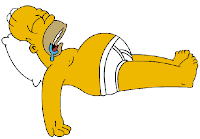Today I would like to discuss an oft-overlooked aspect of health: Our connection to something bigger than ourselves. Yes, I am a spiritualist–I believe in God. Maybe not in the way of some organized religions, but I am convinced that the universe is a part of a grand order, of which we are bound in our physiology, and thus our health.
I’m not going to necessarily discuss the universal order as it pertains to physiology and health here. Instead I am going to touch on a few points on spirituality and health, as well as encourage you to watch the beautiful video above to witness the magnificence of the universe from our earthly perspective, and hope you realize it is all much bigger than even this.
- Studies show that people practicing any type of mainstream faith actually live longer (more here)
- “Lack of religious involvement has an effect on mortality that is equivalent to 40 years of smoking one pack of cigarettes per day” ~ Dr. Harold Koenig of Duke University Medical Center
- People that practice spirituality have lower incidences of drug abuse, alcoholism, suicide and family violence
- Meditation, prayer, and participation in devotional services reduce feelings of depression and anxiety significantly
- Meditation lowers the risk of heart disease (among other conditions)
Health is directly related to our connections to a greater source. Whether real or psychological is irrelevant to our discussions here–all I wish to point out is the improvement to physical health when spirituality is believed/practiced/observed.
If we can put aside for one minute our politics, our illusions, our human drives, and our emotional oscillations to just witness the beauty of the all, if only for just this one needle-point view of the grandness offered by the accompanying video, then I am certain we can all catch a glimpse of what we truly are. THIS is the source of health, and it’s a confirmation that we can all have optimal health if we are in touch with the source. That’s my belief anyway.














